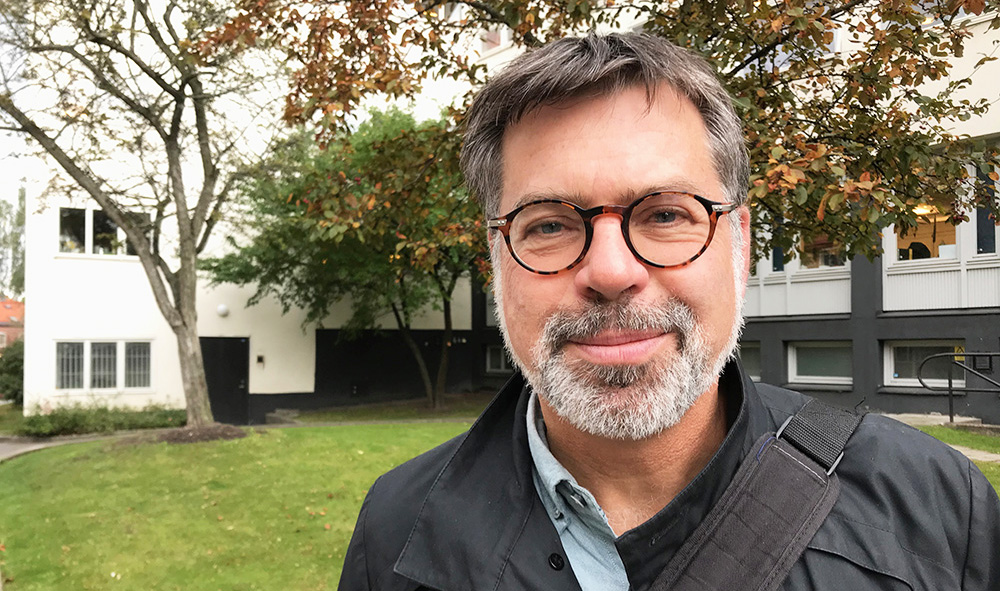"Money and payments concern everyone”

INDEK's Niklas Arvidsson foresaw the cashless society and says that several exciting innovations are on the way that will change the payment systems for all of us. Niklas is one of three new professors at the ITM School – probably the one who makes the best moussaka.
Describe your research and how it can make a difference
I have for a long time studied why Sweden has become a cashless society. We are - like our Nordic neighbors - unique in using almost no cash. This stems from a combination of many factors, including trusting the state, legislation, rapid technological development, business models, and how quickly Swedes adopt new digital technology. During the 15 years I have researched the subject, the industry has constantly changed, and I think this will continue. We have exciting innovations to look forward to in the coming decade. In ten years, perhaps paper-based cash has gone digital, identification is done biometrically or is directly linked to digital money, and payments take place in real-time on a global level. But only if our societies continue to develop as solid and free democracies. But I think we can expect an exciting decade in terms of payments and money.
How was your interest in the research area aroused? What inspired you?
I have always been interested in innovation and change, both in large innovation systems and in companies - this has characterized my entire research life. Around 2008, I launched a research project called The Cashless Society, based on scenarios about future cash use. This was when the usage of cash was at its highest in Sweden. The project indicated that we would drastically reduce the use of cash. And quite rightly, since then it has fallen sharply and today it accounts for about 1 percent of GDP. Roughly 1 percent of the Swedish economy is based on cash while the rest is based on electronic payments. This is not an area where digital technology is making a strong impact, but rather an area where non-digital technologies are disappearing. As money and payments are central to a market economy and affect everyone - large companies as well as individuals - my already great interest grew day by day when this radical change took off in the 2010s.
An important factor for this transformation is the strong digital innovation power in Sweden - both through banks, fintechs and other technology companies. It has been exciting to follow and study this closely. Today, the Swedish fintech industry is very strong and we can expect more innovations in the area. My own, and others' research on Sweden's radical social transformation has also received a great deal of international attention, which of course has also strengthened my interest in this area.
How would you describe yourself as a person at work?
It is always difficult to describe yourself, but above all I’m stubborn and curious. I believe that successful work is based on long-term, focused and hard work. I hope that I am also nice and helpful to my colleagues, but you should probably ask them about that.
What will be the biggest difference with a new title?
I'm not entirely sure yet, but I will strive to build a strong research node on how digital technologies will change industries such as banks and payments, but at the same time do research on how digital technologies change innovation processes, industry boundaries and competitive factors.
